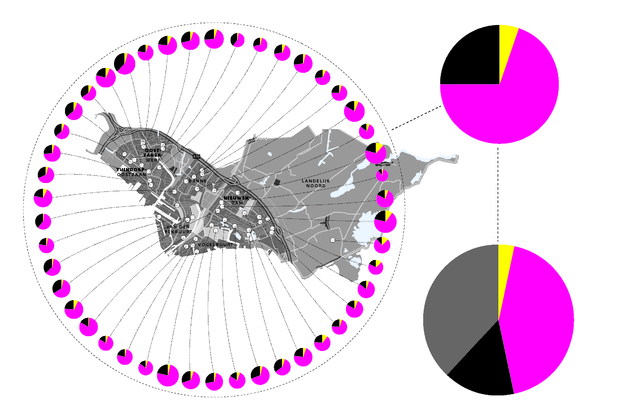The voting behaviour in Noord differs greatly between neighborhoods, so we’ve drawn a map. For a clearer overview, the political field is split up into three groups: parties that put their trust in god (pink), parties that put their trust in humanity (yellow), and parties that trust absolutely no one (black). The god-trusting parties in Noord are the smallest with 5.5%, yet they still have a larger percentage than they do in Amsterdam as a whole (4.3%). The parties that trust absolutely no one have reached a troublesome 25%. That’s higher than the national average (18%) and double that of Amsterdam’s overall average (12%).
One explanation might be that a great part of the population used to work in the heavy industrial sector, that has slowly all but disappeared from Noord. Because of this, the economic position of Noord’s inhabitants is weaker and the expectations for the future are less optimistic than they are on average for the rest of Holland. Moreover, Noord also has a lot of immigrants. This probably increases insecurity among the economically weaker groups.
Voting in Holland is not compulsory, therefore the amount of actual voters tells us something about the trust citizens have in the social system. Nationally, 25% of the electorate ignores the elections, but in Noord that’s 38%. Combine that with the 25% that votes but trusts no one, and Noord is very close to 67%, the magical percentage needed to make adjustments in the constitution. This makes Noord one of the most politically interesting places in The Netherlands!
The largest of the small segments corresponds with the part of the electorate that votes in the local polling station. The largest segment corresponds with all the people who are entitled to vote. The other large segment is the sum of all the small segments.
